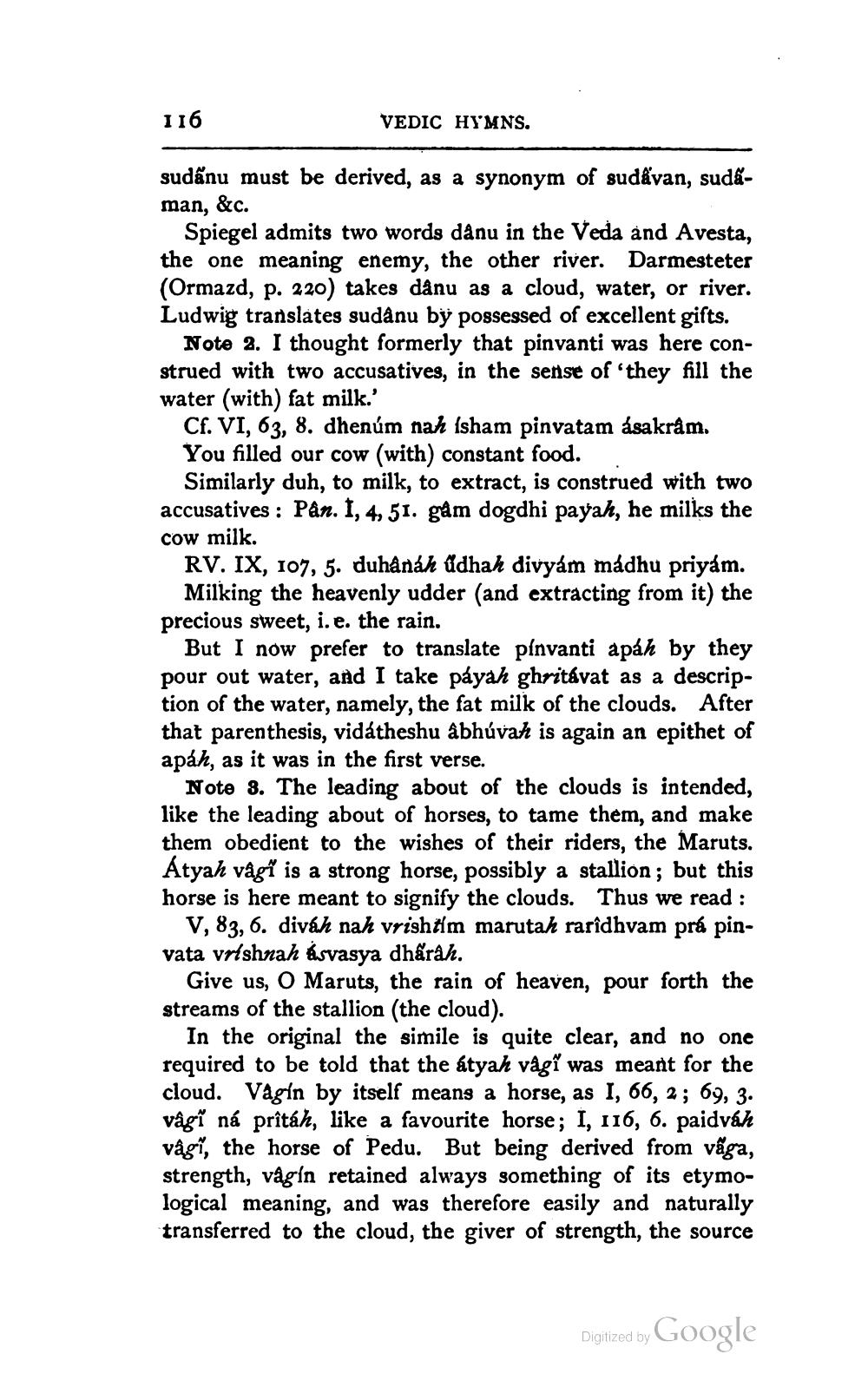________________
116
VEDIC HYMNS.
sudãnu must be derived, as a synonym of sudávan, sudaman, &c.
Spiegel admits two words danu in the Veda and Avesta, the one meaning enemy, the other river. Darmesteter (Ormazd, p. 220) takes danu as a cloud, water, or river. Ludwig translates sudanu by possessed of excellent gifts.
Note 2. I thought formerly that pinvanti was here construed with two accusatives, in the sense of 'they fill the water (with) fat milk.'
CF. VI, 63, 8. dhenúm nah (sham pinvatam ásakram. You filled our cow (with) constant food.
Similarly duh, to milk, to extract, is construed with two accusatives : Pan. I, 4, 51. gám dogdhi payah, he milks the cow milk.
RV. IX, 107, 5. duhånáh ûdhah divyám madhu priyám.
Milking the heavenly udder (and extracting from it) the precious sweet, i.e. the rain.
But I now prefer to translate pinvanti apáh by they pour out water, and I take payah ghritávat as a description of the water, namely, the fat milk of the clouds. After that parenthesis, vidátheshu âbhúvah is again an epithet of apáh, as it was in the first verse.
Note 8. The leading about of the clouds is intended, like the leading about of horses, to tame them, and make them obedient to the wishes of their riders, the Maruts. Atyah vågi is a strong horse, possibly a stallion; but this horse is here meant to signify the clouds. Thus we read :
V, 83, 6. diváh nah vrishtim marutah raridhvam prá pinvata vrishnah ásvasya dhårah.
Give us, O Maruts, the rain of heaven, pour forth the streams of the stallion (the cloud).
In the original the simile is quite clear, and no one required to be told that the átyah vagi was meant for the cloud. Vagin by itself means a horse, as I, 66, 2; 69, 3. vâgî ná prîtáh, like a favourite horse; I, 116, 6. paidváh vagi, the horse of Pedu. But being derived from vaga, strength, vagin retained always something of its etymological meaning, and was therefore easily and naturally transferred to the cloud, the giver of strength, the source
Digitized by
Digized by Google




